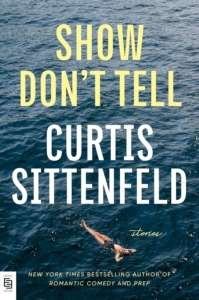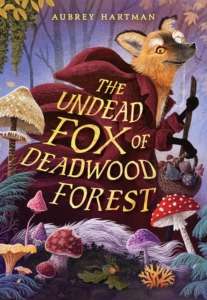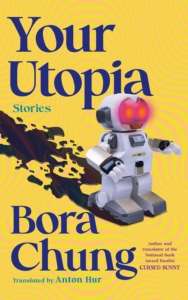
Available in New Large Print Fiction.

Isola by Allegra Goodman
Goodman delivers an engrossing if overlong account of French noblewoman Marguerite de la Rocque de Roberval (1515–1542), who lived to tell the tale of her solitary exile on an island off the coast of New France. Orphaned by age three, Marguerite and her nurse, Damienne, are placed in the care of Marguerite’s duplicitous cousin, Jean-François. As Marguerite grows up, Jean-François treats her cruelly, cramming her into a corner of the Roberval’s ancestral home to make way for new tenants. He also squanders Marguerite’s inheritance to pay his debts and fund his naval expeditions, and takes Marguerite and Damienne with him on a ship bound for New France. Marguerite, now a young woman, is resourceful but impetuous, and she falls in love with Jean-François’s secretary, Auguste Dupré, during the voyage. After a furious Jean-François catches on to Marguerite and Auguste’s affair, he maroons them on an uninhabited island. Though the story drags in places and the ending is a bit too pat, Goodman brilliantly depicts Marguerite’s courage as she fights to survive the bitter Canadian winter. It’s a rousing portrait of an undaunted woman. Agent: Julie Barer, Book Group. (Publisher’s Weekly, Feb.)
Available as a book in New Fiction, ebook, and eaudiobook.
 The Undead Fox of Deadwood Forest by Aubrey Hartman
The Undead Fox of Deadwood Forest by Aubrey Hartman
From Goodreads: “Clare is the undead fox of Deadwood Forest. Here, leaves grow in a perpetual state of fall: not quite dead, but not quite alive—just like Clare. Long ago, he was struck by a car, and, hovering between life and death, he was given the choice to either cross into the Afterlife or become an Usher of wandering souls. Clare chose the latter: a solitary life of guiding souls to their final resting place.
Clare’s quiet and predictable days are met with upheaval when a badger soul named Gingersnipes knocks on his door. Despite Clare’s efforts to usher her into the Afterlife, the badger is unable to leave Deadwood. This is unprecedented. Baffling. A disturbing mystery which threatens the delicate balance between the living and the dead.
Desperate for help, Clare and Gingersnipes set out on a treacherous journey to find Hesterfowl—the visionary grouse who recently foretold of turmoil in Deadwood. But upon their arrival, Hesterfowl divulges a shocking revelation that leaves Clare devastated, outraged, and determined to do anything to change his fate.
This delightfully grim tale is a heartwarming exploration of moving on, perfect for fans of Kate DiCamillo and Tim Burton.”
Available as in New Children’s Fiction.

The Miracles of the Namiya General Store by Keigo Higashino
Higashino (Newcomer), a bestseller in his native Japan, departs from his normal thrillers to deliver a sparkling tale about opening up to others’ troubles. Shota, Atsuya, and Kohei are looking for a place to lay low after committing a robbery and end up in the abandoned Namiya General Store. While they are hunkered down, a letter slides through the store’s mail slot–an unnamed woman is asking advice about if she should dedicated herself to pursuing her Olympic dream or stay with the dying man she loves. Through reading the letters, they learn that Mr. Namiya, the former shopkeeper, had devoted his time to answering the mail of anyone in need of advice. Over the course of a single night, the three robbers read letters other people had sent and see their own views on humanity change. In one story, a man dreams of making it in the music world, but when he finds out that his father is sick, he must decide between pursuing his dreams and taking over his father’s shop (and sends a letter to Namiya for advice). In another letter and narrative thread, Takayuki Namiya is shocked to discover his father is healing from his own grief by giving advice to random people, but finally, in his father’s last days, he comes to understand the impact of the letters–both on his father and on those who solicited his advice. Those used to Higashiro’s more high-octane plots will discover a new side to the author in this satisfying outing. (Publisher’s Weekly Review, Sept.)
Available as book in New Adult Fiction.

Your Utopia by Bora Chung
Booker Prize–shortlisted Chung (Cursed Bunny) makes a dazzling return with these eight inventive tales. The collection opens with “The Center for Immortality Research,” which imagines bureaucracy, hierarchy, and capitalism continuing on for eternity. In “A Very Ordinary Marriage,” a man’s suspicions about his wife’s late night phone calls leads him down an uncanny rabbit hole. The standout title story examines a future in which artificial intelligence is all that remains on Earth. An autonomous vehicle travels aimlessly through this landscape, carrying a flawed humanoid robot that endlessly repeats variations of the same question–until a new variation of the question becomes a warning. Hur’s skillful translation feels authentic to Chung’s voice without an ounce of pandering to a potentially unaware Western audience. The author has an impressive ability to balance emotional and psychological depth with a touch of the surreal, creating a collection that resonates long after the final page is turned. A literary force to be reckoned with, Chung makes another splash. Publisher’s Weekly Review, Feb.
Available as a book in New Fiction.
